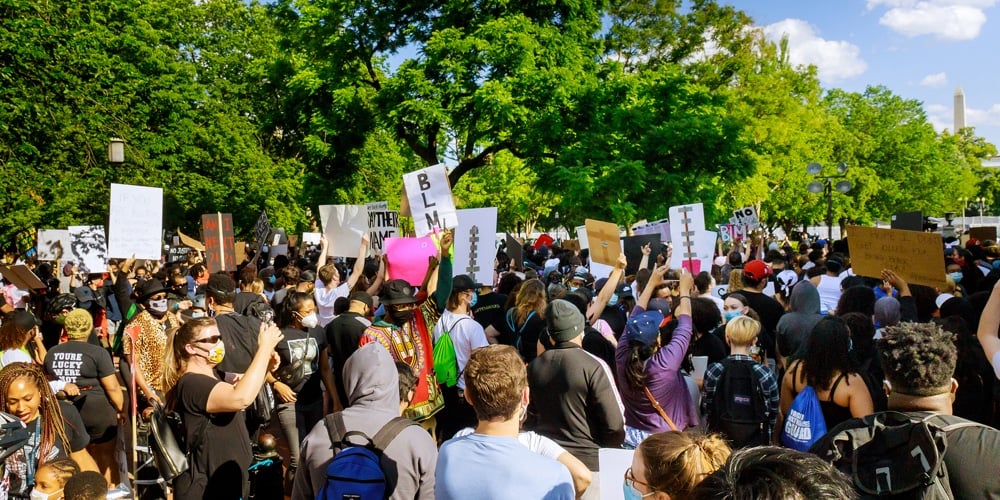Why Diversity, Equity and Inclusion should always be a part of the conversation

The recent murder of George Floyd has incited a range of emotions in our country. Sparks of anxiety, unrest, frustration, sadness, anger, confusion and concern abound, just to name a few. Our country is at an apparent impasse right now. We are faced with a great opportunity to move the needle on issues that have plagued us for longer than any of us have been living. We live in a system crafted by forefathers that didn’t always properly consider or care for all people.
In recent months, we have been faced with a multitude of things. The coronavirus pandemic came on in the fiercest way for which none of us could have adequately prepared. I know all too well the magnitude of its impact. In April, I lost my Mom to it.
I could spend a lot time unpacking the disproportionate ways communities of color have been affected to a greater degree than other ethnicities. Lack of access to quality care in our local neighborhoods, low income, even poverty perpetuated by longstanding systems that created a substantial wealth gap, and more. Yet, in a time when we are all faced with the strain and frustration of a pandemic, we were not ready for when an even bigger giant reared its ugly head. Racism.
The death of George Floyd played out in a video we all had a chance to see. It was horrifying, egregious and inhumane. One of the most hurtful things was his cry for his mother who has been deceased for two years. That cry was the cry of a man who saw his life fleeting. A man who had likely witnessed every hashtag in the past and viewed it with a very real fear that it could possibly be him one day. Sadly, that day found him.
That fear, that anxiety is something I know all too well. As a black man in America, I can tell you that even with my education, career attainment and accolades, I still live with the fear that on any given day, the color of my skin can be a perceived threat. That threat can be a license to kill for some. I live with the understanding that I have to prepare my son for a world that may not seek for the beauty of his brain but the distraction and resistance of the melanin in his skin.
One of our greatest frustrations is fighting so hard to open dialogue on this topic only to be misunderstood, dismissed or even removed from opportunities. Assimilation culture is real, and in many cases as minorities, we work to dilute our cultural norms to gain access to places that would not routinely accept us. Many of us have been in conversations where people who look like us were viewed in disdain, yet we were told we’re different and not like the others. The translation is usually, “You have assimilated well – in a way where I can feel comfortable.”
I wish I could say that my race has never been an issue over the span of my career. But in reality, it has. I have learned of opportunities – from some of my white allies – I was not considered for due to my race. I have been a target by others who viewed my intellect and aspirations as intimidating. I have had people work to try to remove me from leadership positions. Positions that were not handed to me. Positions I had worked for. Glass ceilings that I had cracked. At times, I wanted to speak up boldly. In times where I did use my voice, I worked to make my message palatable instead of raw and real.
Even now, as I type this, I struggle with what outcome will exist. Will my words be viewed as I mean them from my heart? Will they be dismissed? Will they be overlooked? Will I be ostracized? We are at the crux of a major pivot point. An opportunity to do it differently. An opportunity to do it right. If we are going to be successful, we must get real. This conversation should never die. No matter what may change in our economy and impacts our strategies, this issue that we have a responsibility to change will always exist until we dismantle it.
How?
- Look at your inner circle. Is it diverse? Do you have the opportunity to engage in ongoing conversations with those who differ from you?
- Have you worked to create opportunities in your board rooms and executive suites for those who don’t look like you? You may say, ‘We chose the best person for the job.’ To which I ask, ‘Where did you source them? Did you reach into the areas they frequent?’
- Get educated. A great starting point for information on the existing structure is the Willie Lynch letter. It gives keen insight into the behaviors that were strategically designed and perpetuated from generation to generation. The documentary 13th is filled with many great insights as well.
- Stand up and use our voice in advocacy that will make a difference. We know all too well how powerful and necessary advocacy is. Find out the issues that matter and elevate your voice.
I know this is a difficult time and leading through the coronavirus pandemic is tough. However, as you work to figure out how to navigate this evolving world, don’t lose focus on what matters. Diversity still matters. Diversity, equity and inclusion is a conversation and responsibility that should never die. If we miss this moment, generations ahead of us may never truly live in the world of which Dr. Martin Luther King dreamed. That’s not an outcome we should be willing to accept.





